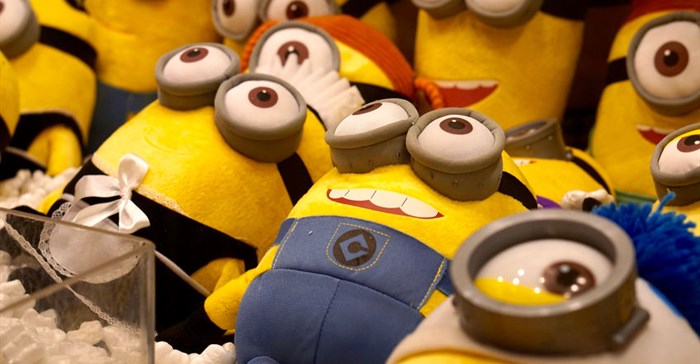
Parents have been warned about the potential dangers of buying cheap toys for their children and have been told to be vigilant after tests of seized items showed some contained high levels of phthalates believed to increase risk of developing cancer.
“It is frightening to think that large quantities of phthalates are still being used in children’s toys, especially when it can cause such serious long-term consequences to a person’s health,” said Robert Chantry-Price, a lead officer for product safety at the CTSI (Chartered Trading Standards Institute).
“Counterfeits are getting more sophisticated,” says Tom Godfrey, from Australia's leading consumer advocacy group - CHOICE. “So in some cases the toys may well look good from the outside, but what we find is that they will not meet any of the safety standards. Genuine toys will have all the materials tested, all using the types of plastic that are known to be safe. Counterfeit goods haven’t gone through any of these tests, and so they won’t have an approved mark on the back showing the suitable age range for the product.”
Parents have been advised to be cautious and not fall for the first deal they see, buy only from reputable shops, beware of products that are drastically cheaper and look at the packaging for the distributor’s details and a CE mark.
Some tips
Online buying
“If you do need to buy something from a website,” says Hal Rosenburg, the owner of Just Collectables, Melbourne’s top genuine action figure shop for over 20 years, “you want to look at how complete the descriptions are and the level of communication. If you see something on eBay that is listed as just a loose figure in a bag, you do not always know what you are going to get.
“In terms of making payment, make sure you use PayPal because you have a layer of protection there. What it does is automatically hold your payment for a period of time so you have recourse straight away if something is not right and you can get your money back.”
As the global trade in counterfeit goods is growing, Africa is increasingly being targeted as a market for counterfeit merchandise. Recently, a new trend has also emerged - Africa is being used as a transit route for fake goods, which poses an indirect threat to European and American markets, too.
Counterfeit products are not produced to any significant degree in Africa. These products are mostly imported from Asia and particularly China. As such, Africa is fast becoming a dumping ground for knock-off goods. A very high percentage of counterfeit shipments from China are destined for Africa, either directly or via ports such as Karachi, Dubai or Hong Kong, in an effort to reroute the products so that their country of origin can be disguised.
A number of factors contribute to Africa's attractiveness in being a destination of choice for counterfeiters, including:
Due to these factors, the problem of fake goods is increasingly serious and the continent is fast becoming ‘fair game' for counterfeiters and it is hurting the continent's population and economy.
Buying fakes is not innocent. Crime syndicates thrive on the trade to keep their illicit activities going. With the African market in fake goods expanding, one can expect criminal syndicates strengthening their foothold across the continent. This means that governments will have to invest more in law enforcement, and in so doing divert much needed resources away from human development endeavours.
Millions are spent on marking products so they can be tracked and traced. So be vigilant and check for authentication on your products and you can avoid being the next victim.